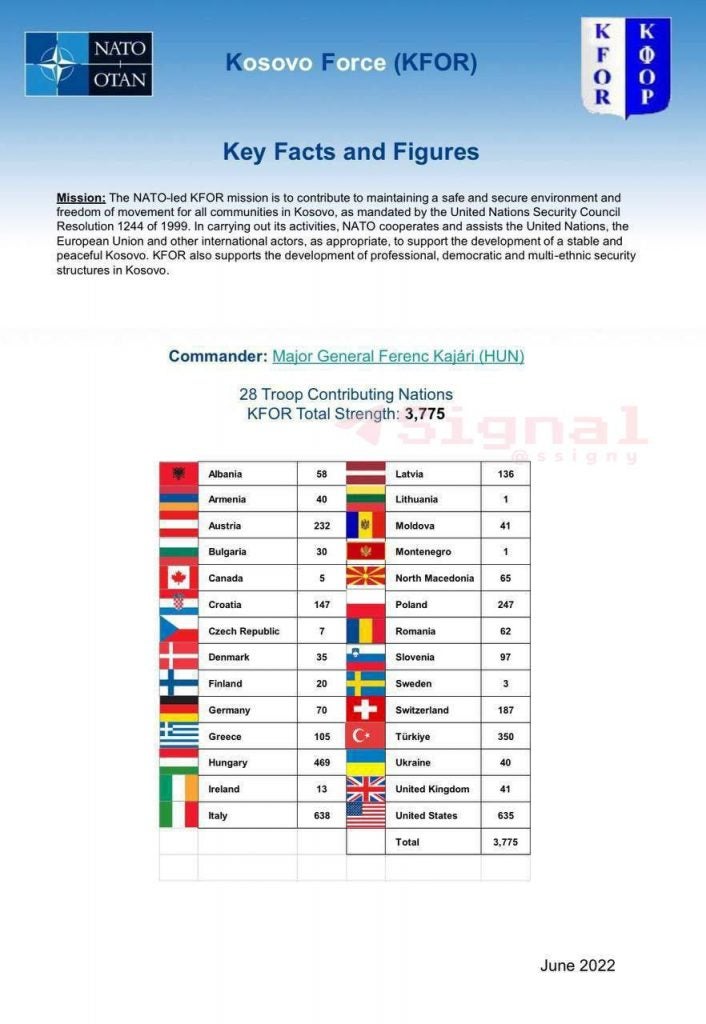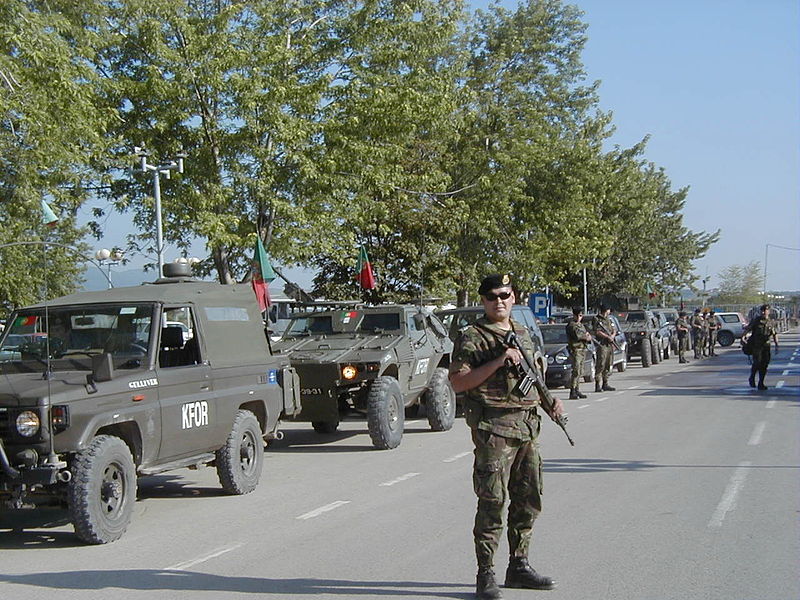Tensions On The Border of Serbia and Kosovo Escalate Once Again
The long-running tensions between Kosovo and Serbia have escalated once more. On Sunday, July 31, several images of rising tension in northern Kosovo near the Serbian border started to circulate on social media. In the footage shared by users, it was alleged that gunfire was occasionally heard, the two countries mutually closed their border crossings, and air raid sirens were heard in Mitrovica, the last large ethnic Serb settlement in Kosovo.
The region’s tensions have risen just hours before a new legal regulation in Kosovo was set to go into effect today. As of August 1, entry into Kosovo with Serbian identity and passports is prohibited under the aforementioned regulation. Serbs entering Kosovo will be issued an entry document valid for 90 days. The regulation also includes replacing the license plates of Serbs living in Kosovo’s north with license plates bearing the abbreviation “RKS” issued by Kosovo. Serbia implemented the same regulation for the citizens of Kosovo 11 years ago. In response to the protests and unrest Kosovo’s government have temporarily postponed the roll out of the legislation. Prime Minister Albin Kurti said there would be a further transitional period.
The Kosovo police confirmed the news in the media by announcing the closing of the Jarinja and Brnjak border gates, which are located north of Mitrovica on the border with Serbia. The local people’s blockade of the roads leading to these border crossings was cited as the reason for the gate’s closure, and citizens were urged to use alternative border crossings. Kosovo Police also reported hearing gunshots at various points, but there is no official information that citizens or police were injured. The Kosovo police, who did not reveal from which side the guns were fired, urged the public and the media to avoid both believing and spreading rumors that would destabilize the situation and spread panic.
The Serbian Ministry of Defense issued a statement alleging that the Kosovo government is spreading massive amounts of disinformation, including fake social media accounts. “There were allegedly some clashes between the Serbian Army and the so-called Kosovo police,” the ministry said. The ministry went on to say that the Serbian Army “did not enter Kosovo’s territory in any way.”
Following the escalation of tensions in Kosovo, Serbian President Aleksandar Vucic delivered a public address. In a statement, Vucic said, “The atmosphere has warmed up, and Serbs will not see any more brutality,” he continued, adding, “My request to everyone is to keep the peace at all costs.” I request the Albanians to come to their senses, the Serbs not to be provoked, and representatives of powerful and large countries that recognize Kosovo’s so-called independence to pay attention to international issues”.
“We do not want conflict and war,” Vucic noted, adding, “We will pray for peace and seek peace, but let me say this now. We will not surrender. If they dare to oppress, harass, and kill Serbs, Serbia will win.”
Immediately following Serbian President Aleksandar Vucic’s statement, Kosovo Prime Minister Albin Kurti released a video message on social media in which he addressed the latest tensions between Kosovo and Serbia. Kurti, who blamed Serbian President Aleksandar Vucic and Serbia’s Kosovo Representative Petar Petkovic for the tensions in Kosovo’s north, urged the Kosovo public not to fall prey to trap of the Serbian media. “The coming days and weeks may be challenging and problematic,” Kurti added. However, in response to the ongoing protests, Kurti issued a second statement. Kurti pledged in his statement that he would postpone the implementation of the decisions on license plates and entry-exit documents at border crossings with Serbia for 30 days if all barricades were removed and full freedom of movement was restored.
Following the tension on the Serbia-Kosovo border, Russia, Turkey, and NATO issued statements one after the other. “We call on Pristina and the US and the EU behind it to stop the provocations and respect the rights of the Serbs in Kosovo,” Russian Foreign Ministry spokeswoman Maria Zakharova said. “I met with my Serbian and Kosovo counterparts due to the tension on the Serbia-Kosovo border,” Turkish Foreign Minister Mevlüt Çavuşoğlu said. “Turkey always attaches importance to the peace and stability of the Balkans. New tensions don’t help anyone. We are ready to do our part to alleviate tensions.”
KFOR, the NATO force stationed in Kosovo, made a statement on the recent tensions, saying, “The overall security situation in the northern district of Kosovo is tense. The NATO-led KFOR mission is closely monitoring and is prepared to intervene if stability is threatened, in accordance with its date, which emerges from UN Security Council Resolution 1244 of 1999. Our NATO-led KFOR mission is fully focused on the daily implementation of its UN mandate to ensure a safe and secure environment and freedom of movement for all the people of Kosovo. KFOR maintains a visible and agile posture on the ground, and the KFOR Commander is in contact with all of his main interlocutors, including the representatives of the Kosovo security organizations and the Serbian Chief of Defense.” 3,775 foreign service members from 28 countries, mainly from NATO members and their allies, make up the KFOR contingent in Kosovo at the moment.

Although Kosovo unilaterally declared its independence in 2008, Serbia still claims it as part of its territory, despite the fact that more than 100 nations have now acknowledged Kosovo’s independence. The EU served as a mediator when the Belgrade-Pristina Dialogue Process was launched in 2011. Its objective is for the two nations to eventually recognize one another. However, for a variety of reasons, including the tension felt on July 31, the dialogue process between Kosovo and Serbia is frequently interrupted.

